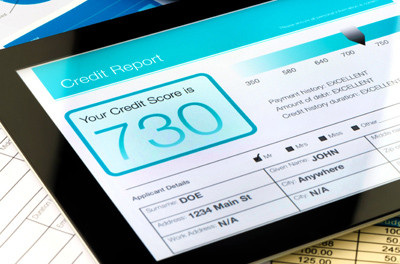Financial responsibility means more than being smart about spending and saving—it also means protecting your credit. One way many people are choosing to play it safe with their credit these days is by initiating a credit freeze. We’ve talked before about how to freeze your credit if you already know that’s what you want to do. But for the rest of us, it can be difficult and confusing to tell whether or not a credit freeze is a good idea. Fortunately, we can help you make this important decision.
The most important thing to know about credit freezes is that they are intended for the victims of identity theft.
Have any of the following happened to you in the past year?
- Your identity has been stolen
- You’ve lost your wallet, purse, computer, or personal files
- Your Social Security Number has been compromised
If so, the answer is clear: a credit freeze may be your best option.
Why is this?
When you know for certain that your personal information or identity has been compromised, a credit freeze is the most effective way to stop criminal activity before it starts. That’s because it prevents nearly everybody from accessing your credit information. And when lenders can’t see your credit information, they will not open a new line of credit in your name—whether it’s you who has initiated the transaction, or a criminal using your name.
But there are certain other reasons why you still may want to freeze your credit, even if you haven’t been the victim of theft. Some people—especially former victims of identity theft— may want to implement the strongest-possible protections against fraud. Or, if you’re ill, overseas, or otherwise unable to tend your accounts, a credit freeze is an effective “set it and forget it” credit protection method until you’re back on your feet. And, some people just don’t like the idea of others having access to their credit history without permission.
But for everybody else, a credit freeze might be overkill. Why?
- Credit freezes prevent you from monitoring your own credit
- Lifting and reinstating the freeze may cost a fee each time
- There are dozens of legitimate reasons why people or institutions need to access your credit, which creates more hassle for you if your credit is frozen
- Credit freezes do nothing to prevent criminals from accessing your bank accounts—savings, checking, and credit card lines
Credit Freezes vs. Fraud Alert
The good news? You don’t have to choose between extremes if you want to take an extra step to protect your credit. Fraud alerts are an excellent option to keep a close eye on your credit score without having to lock it up and throw away the proverbial key. With a fraud alert, there is an extra, identity-verifying step creditors must take before they are allowed to see your credit history. This means that if somebody wants to open an account in your name, the creditor must go the extra mile to make sure it’s really you who’s initiating the inquiry.
If you’re looking to improve your credit score, remember that neither a freeze nor a fraud alert will count against you. Want to speak to somebody in person about whether or not you should freeze your credit? Give us a call! We’d love to talk you through it![/fusion_text]





[…] iframe { visibility: hidden; opacity: 0; } Previous […]